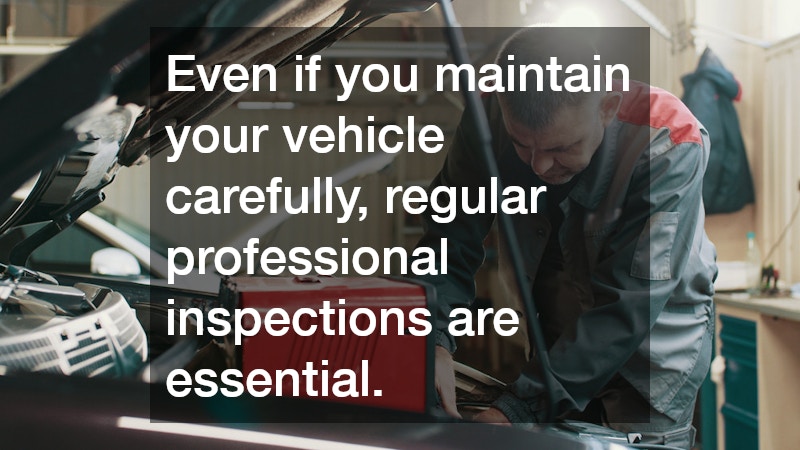Owning a vehicle is a significant responsibility, and maintaining it properly is essential to avoid unexpected breakdowns and expensive auto repairs. Regular preventative maintenance helps extend the lifespan of your car, improves safety, and saves money in the long run. Neglecting routine checks can lead to major issues that often require costly fixes, but with the right knowledge and habits, many of these problems can be prevented.
This blog will explore practical preventative maintenance tips to help you keep your vehicle in top shape and steer clear of costly auto repairs.
Regular Oil Changes Are Essential
One of the most crucial preventative maintenance steps is changing your engine oil regularly. Oil lubricates the engine’s moving parts, reduces friction, and helps keep the engine cool.
Over time, oil breaks down and becomes contaminated with dirt and debris, which can cause engine wear or even failure.
Following your manufacturer’s recommended oil change schedule is vital to avoid engine damage. Using the right type of oil for your vehicle also matters, so consult your owner’s manual or a trusted mechanic. Keeping up with oil changes can prevent expensive engine repairs and keep your vehicle running smoothly.
Monitor Tire Health and Maintain Proper Inflation
Tires are your car’s only contact with the road, so keeping them in good condition is critical for safety and performance. Worn-out tires or incorrect tire pressure can lead to uneven wear, reduced fuel efficiency, and poor handling.
Check your tire tread regularly for signs of wear and replace tires when necessary. Maintaining the correct tire pressure as specified by your vehicle manufacturer ensures optimal traction and can extend tire life. Properly inflated tires also reduce strain on your suspension system, helping to prevent further repairs down the line.
Replace Air Filters to Protect Engine Performance
Your vehicle’s air filter prevents dust, dirt, and debris from entering the engine. A clogged or dirty air filter restricts airflow, reducing fuel efficiency and engine power. Over time, this can lead to increased emissions and potential damage to engine components.
Replacing the air filter at recommended intervals is a simple preventative maintenance task that can significantly improve your vehicle’s performance. Regular air filter changes contribute to smoother engine operation and may help you avoid costly engine repairs in the future.
Keep Your Brakes in Check
Brake maintenance is critical for your safety and to avoid costly repairs. Squeaking or grinding noises, a soft brake pedal, or a longer stopping distance are warning signs that your brakes need attention.
Have your brakes inspected regularly by a professional mechanic. Replacing brake pads and rotors when needed prevents damage to other braking components. Timely brake maintenance can save you from more expensive repairs and ensure you remain safe on the road.
Maintain Proper Fluid Levels
In addition to engine oil, your vehicle relies on several other fluids, including transmission fluid, coolant, brake fluid, and power steering fluid. These fluids lubricate, cool, and protect various systems in your vehicle.
Regularly checking and topping off these fluids can prevent overheating, transmission failure, and brake problems. Flushing and replacing fluids according to the manufacturer’s schedule is also crucial for maintaining system health. Proper fluid maintenance reduces the risk of breakdowns and expensive auto repairs.
Inspect Belts and Hoses for Wear and Tear
Belts and hoses play a vital role in your vehicle’s operation by driving essential components like the alternator, water pump, and air conditioning compressor. Over time, they can crack, fray, or become loose, leading to breakdowns.
Regular inspection for signs of wear or leaks helps catch problems early. Replacing worn belts and hoses before they fail can prevent engine overheating, loss of power steering, and other costly issues. A professional mechanic can assist in identifying when replacements are necessary.
Battery Care and Electrical System Checks
A healthy battery is crucial for starting your vehicle and powering electrical systems. Corroded terminals, loose connections, or an aging battery can cause starting problems and electrical failures.
Keep the battery clean and check for corrosion regularly. Testing your battery’s charge and replacing it before it dies unexpectedly helps avoid inconvenient breakdowns. Additionally, routine checks of your vehicle’s electrical system can detect wiring issues or faulty components before they lead to bigger repairs.
Regular Professional Inspections
Even if you maintain your vehicle carefully, regular professional inspections are essential. Skilled mechanics can identify issues that might be missed during routine checks and provide recommendations to address them early.
Scheduling seasonal inspections or follow-ups based on your vehicle’s maintenance schedule helps keep everything running smoothly. These inspections are an investment in your vehicle’s longevity and a smart way to avoid unexpected auto repairs.
Following these preventative maintenance tips is one of the best ways to protect your vehicle and avoid costly auto repairs. Regular oil changes, tire care, brake inspections, fluid maintenance, and professional checkups can all contribute to a longer-lasting, safer car.




